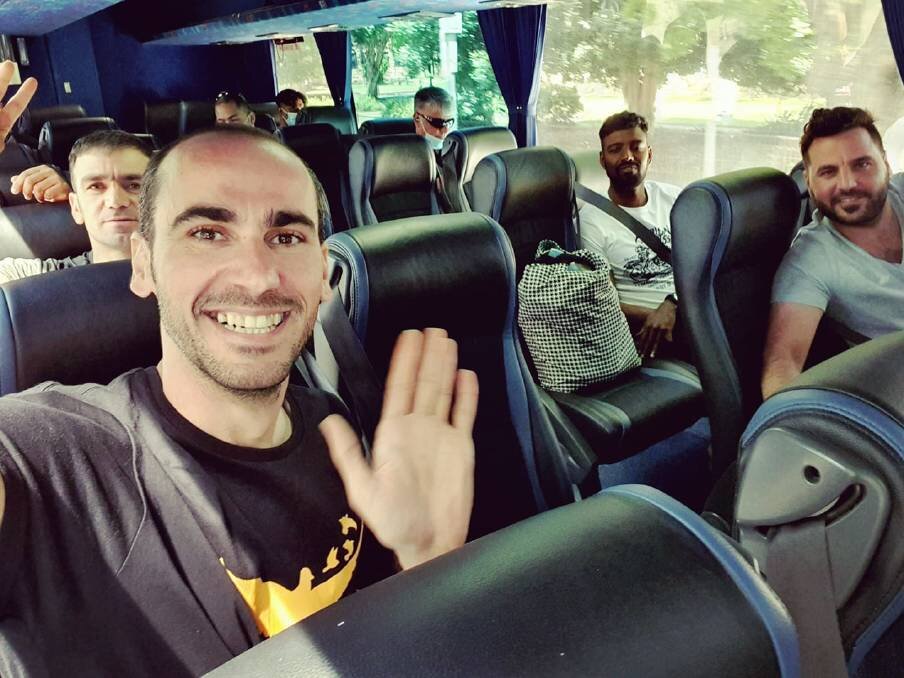ARTICLES BY ANGUS MCDONALD
Angus McDonald’s column True North appears weekly in the Northern Rivers Review.
“My Archibald entry of Behrouz Boochani, the refugee who refused to be invisible”
THE SYDNEY MORNING HERALD
SEPTEMBER 17, 2020
BY ANGUS MCDONALD
On Thursday morning, a portrait I painted of the Kurdish-Iranian refugee, writer and journalist Behrouz Boochani was included among the finalists for this year’s coveted Archibald Prize.
Boochani, finally free and living in New Zealand after the Australian government held him for more than six years on Manus Island in Papua New Guinea, symbolises the struggle for a more humane and compassionate approach to the way this country treats those who arrive here seeking our protection and safety.
I’ve known Boochani since 2018, when he collaborated on a documentary I produced about the Manus detention centre.
Freedom is beautiful, especially for those unjustly deprived of it
NORTHERN RIVERS REVIEW
JANUARY 27, 2021
BY ANGUS MCDONALD
Last week, Mostafa Azimitabar, a Kurdish Iranian refugee, was finally granted his freedom after almost eight years of captivity under Australia's brutal offshore processing regime.
Moz Azimi, or Moz as he is known, arrived by boat in 2013 seeking asylum after fleeing persecution in Iran. Consigned offshore by the Federal Government, he was held for years on Manus Island and then afterwards in Port Moresby.
After being transferred to the mainland through the Medevac legislation in late 2019, he spent 13 months in hotel detention in Melbourne with a cohort of other refugees, under guard and totally cut off.
That was until last week, when he learned that together with 46 others, he would finally be released from behind the tinted glass at the Park Hotel in Carlton and granted a six-month bridging visa to live and work in the community.
Inequitable distribution of COVID vaccines is not only unjust, it also risks prolonging the pandemic
NORTHERN RIVERS REVIEW
FEBRUARY 10, 2021
BY ANGUS MCDONALD
Just 12 months after the rise of the pandemic, a monumental global research effort has yielded approximately ten primary vaccines in various stages of development, several of which are already in production and being administered.
But which countries have access to them? We know we do. As does all of the world's wealthiest nations who, despite accounting for just 13% of the global population, have reportedly secured more than half of all the vaccine doses available.
In Australia, the rollout, which begins in the coming weeks, will comprise two drugs. The Pfizer vaccine, with a reported efficacy of 95%, plus the lower, 70% efficacy, Oxford/AstraZeneca jab still going through the TGA approval process. The AstraZeneca vaccine, if approved, will be manufactured locally by biotech company CSL.


